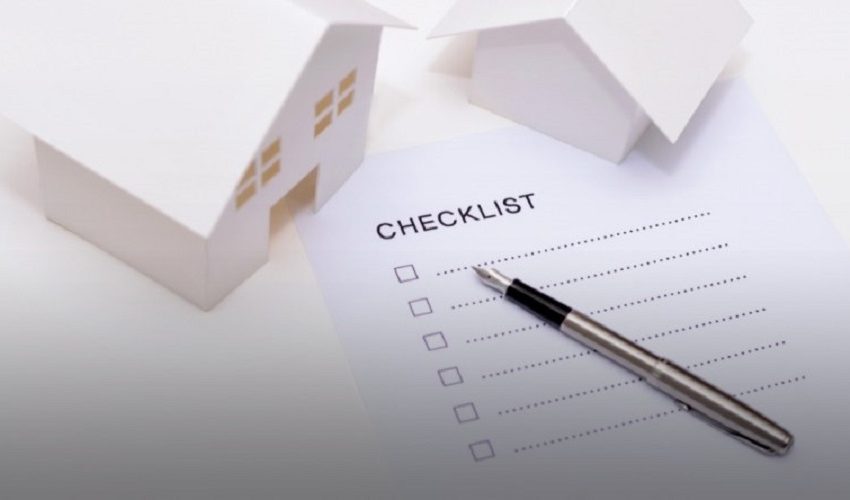Introduction
When it comes to property transactions, thorough inspections are crucial. Whether you’re a homeowner looking to maintain your property or a prospective buyer, having a comprehensive property inspection checklist is a must. In this guide, we will take you through all the essential aspects of property inspection, ensuring that you have the knowledge and tools needed for a seamless experience.
Property Inspection Checklist
Understanding the Basics
To kickstart our
property inspection checklist, let’s start with the fundamentals. Knowing what to inspect is the first step in the process. You want to cover every aspect, and our checklist is designed to help you do just that.
When you walk through the property, make sure to focus on the following:
- Exterior Inspection: Check the condition of the roof, walls, and foundation.
- Interior Inspection: Inspect every room for signs of damage, wear, or potential issues.
- Systems Check: Ensure that all the systems, including plumbing, electrical, and HVAC, are in good working order.
- Safety Assessment: Look for safety hazards, such as loose handrails or exposed wiring.
Preparing for Inspection
Before you dive into the property inspection, there are a few things you should prepare. Having the right tools at your disposal will make the process much smoother:
- Flashlight: Essential for inspecting dark or hidden areas.
- Camera: Take photos to document any issues you find.
- Notepad and Pen: Keep detailed notes of your findings.
- Checklist: Ensure you have a structured list to follow during the inspection.
Exterior Inspection
The exterior of the property is what creates the first impression. Pay attention to the following:
- Roof: Check for missing or damaged shingles.
- Walls: Inspect for cracks, water stains, or peeling paint.
- Foundation: Look for cracks or signs of settling.
- Landscaping: Evaluate the condition of the yard, plants, and trees.
Interior Inspection
Moving inside, focus on each room individually:
- Living Room: Inspect the walls, floors, and windows for any issues.
- Kitchen: Check appliances, cabinets, and plumbing fixtures.
- Bathrooms: Look for leaks, mold, and proper ventilation.
- Bedrooms: Ensure doors and windows open and close smoothly.
- Basement: Check for moisture, leaks, and structural issues.
Systems Check
The property’s systems are vital to daily living: Follow on
Instagram
- Plumbing: Inspect for leaks, water pressure, and drainage.
- Electrical: Test outlets, switches, and circuit breakers.
- HVAC (Heating, Ventilation, and Air Conditioning): Check for proper operation and maintenance.
- Appliances: Ensure all appliances are in working condition.
Safety Assessment
Safety is paramount:
- Staircases: Ensure handrails are secure and steps are in good condition.
- Smoke Detectors: Test them to confirm they work.
- Carbon Monoxide Detectors: Make sure they are installed and functioning.
- Security: Check locks on doors and windows for security.
Now, let’s answer some common questions about property inspection.
FAQs
Is a property inspection necessary for homebuyers?
Yes, absolutely. A
Home inspection checklist can reveal hidden issues that might not be apparent during a casual viewing. It provides peace of mind and can potentially save you from costly surprises in the future.
How long does a typical property inspection take?
The duration can vary depending on the property’s size and condition. On average, it takes about 2-4 hours, but more extensive inspections can take longer.
Should I be present during the property inspection?
It’s highly recommended. Being present allows you to ask questions, receive immediate feedback, and gain a better understanding of the property’s condition.
Can I use the inspection report for negotiations?
Yes, the inspection report can be a valuable tool for negotiations. If significant issues are found, you can request repairs or a reduction in the asking price.
What if I find issues during the inspection?
If you discover issues during the inspection, it’s essential to discuss them with the seller. Depending on the severity, you can request repairs, credits, or a price adjustment.
Are there specialized inspectors for certain aspects, like termites or mold?
Yes, for specific concerns, such as termites, mold, or structural integrity, it’s advisable to hire specialized inspectors. They have expertise in their respective fields.
Conclusion
A
property inspection checklist is an indispensable tool for both homeowners and buyers. It ensures that you don’t miss critical details and helps you make informed decisions. By following this comprehensive guide, you can navigate property transactions with confidence.

